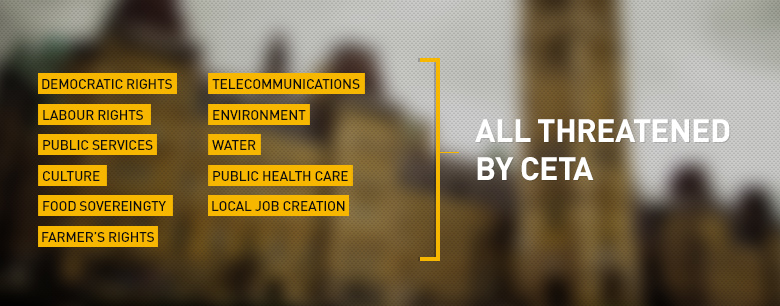‘Thorny’ CETA issues to be tackled in coming weeks : EU trade chief

Embassy | 5 May 2014
‘Thorny’ CETA issues to be tackled in coming weeks : EU trade chief
Besides dealing with final technical issues, the EU Commission is also fighting with member states over who has the competence over the deal.
Anca Gurzu
Solving the final technical issues of the Canada-European Union trade agreement has not been as easy as initially predicted, EU Trade Commissioner Karel De Gucht admitted following a meeting with EU trade ministers on May 8, adding nonetheless that the finishing touches could be put on the deal soon.
“I hope we can finally conclude the technical problems in the coming weeks,” Mr. De Gucht said during a press conference. “A couple of them are a little bit thorny,” he added, so it’s hard to set a fixed date.
The expectation was that Canada and the Commission would initial the Comprehensive Economic and Trade Agreement on May 7, during Mr. De Gucht’s meeting with Trade Minister Ed Fast on the sidelines of meetings hosted by the Organisation for Economic Co-operation and Development.
Mr. De Gucht mentioned “the political breakthrough” from October 2013 when the two sides announced that an agreement in principle had been reached. He said he was aware that “there was a great deal of expectation” from his meeting with Mr. Fast.
“But to be quite frank, final discussions have proven to be more difficult than originally foreseen,” he said.
While Mr. De Gucht did not go into too many details about what the remaining “thorny” issues are, a well-placed EU official who took part in the trade meeting said that financial services, investment protection, maritime services, intellectual property rights and tariff quota management for beef and pork imports are still on the table. The latter deals mainly with whether licences should be issued for quotas or whether they should be given on a first-come, first-served basis.
This issue appears to be almost settled, the EU official said, with the Commission now waiting for confirmation from the Canadians before the file can be closed. On the agriculture side, there appears to be some problems with three geographical indications related to cheese and meat.
Another element of the puzzle is the ongoing public consultation the Commission launched in late March because of public concerns over the investor-to-state dispute settlement mechanism discussed in the EU’s trade talks with the United States. That mechanism has already been agreed upon in the EU-Canada deal.
In a nutshell, the ISDS is a provision that lets corporations seek compensation from states if government policies hurt their business interests. There has been growing and increasingly vocal opposition to having ISDS in the EU-US trade deal. The investment-related text the Commission made available as part of the public consultation derives from the approach Canada and the EU took on this issue in CETA.
Many EU member states have underlined the connection between the EU-US trade talks and CETA on ISDS, Fleur Pellerin, the French secretary of state in charge of international trade and tourism promotion, told journalists during a briefing on the side of the trade ministers’ meeting.
EU states are waiting to see the results of the consultations to see how to move forward on both agreements, she said, without going into more details. The public consultation is open until June.
Internal wrangling
On top of the remaining unsolved technical issues between Canada and the EU, the European Commission is also fighting an internal battle with member states over who has the competence over the Canada-EU deal.
The legal service of the European Council, representing the member states, argues the agreement is of mixed competency, meaning national parliaments would have to ratify it. They say that while the European treaties give the Commission exclusive rights in negotiating free trade agreements, CETA is much more complex. For example, the Council’s legal service argues that investment issues not related to foreign direct investment are the unique jurisdiction of member states.
The Commission’s legal service has not provided its opinion on the matter yet, Mr. De Gucht confirmed, only saying that a decision on the competency of the agreement has to be agreed upon at the moment of the initialling.
Behind the scenes, EU officials say the commissioner would rather leave the decision to the European Court of Justice, a move that could prove time-consuming.
The internal battle over competency is in fact a battle over the speed with which CETA could be ratified. If all 28 national parliaments have to approve the deal, the process could be significantly slowed down and could also be subject to political strategizing from various EU states.
Many member states have underlined that CETA, in its current form, does not reflect the agreement’s mixed competency, French Secretary of State Pellerin said. France, as well as many other EU states, will continue to have “procedural reservations” over the text until they can be sure it highlights a mixed competency.
In fact, member states have not yet seen the final text, Ms. Pellerin said.
“We cannot give political consent to an agreement whose text we haven’t seen,” she said.
anca.gurzu@gmail.com





